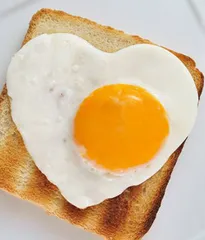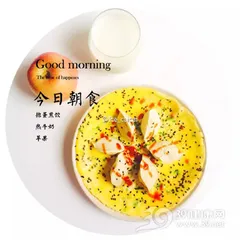The 7 most suitable breakfast recipes for you have high face value and high nutrition

PS: All breakfast pictures in this article are from the clever Weibo Weibo Meiniu @ Ice_caicai, which has been used with my consent.
How should I eat breakfast for weight loss?
The principle of matching a healthy breakfast is a combination of high protein + high fiber, dry and thin. Try to avoid foods that are high in fat + high in sugar (carbohydrates). The following 7 high-profile breakfast recipes were specially invited by Miss Nine of 39 Weight Loss and Fitness College to provide photo materials and ideas on Weibo Meiniu @ Ice_caicai, which basically conforms to the matching principles of nutritious and healthy breakfast. Everyone is welcome to learn from and learn.
Weight loss breakfast recipes 01

Fried dumplings with eggs + a glass of milk + an apple
Protein responsibility: eggs, milk, dumplings
Carbohydrates: dumplings, apples
Cellulose: Apple
Miss Jiu calculated with her fingers and found that this breakfast was enough for 400-500 calories. It's always good to eat more breakfast. After all, you have a whole day to consume it, which is better than going to bed with regret after eating too much at night.
Weight loss breakfast recipes 02


Osmanthus and red bean porridge + other people's wedding cakes + persimmon
Protein responsibility: Red bean porridge
Carbohydrates: wedding cakes, persimmon
Cellulose: persimmon
In fact, you only need a rice cooker with an appointment